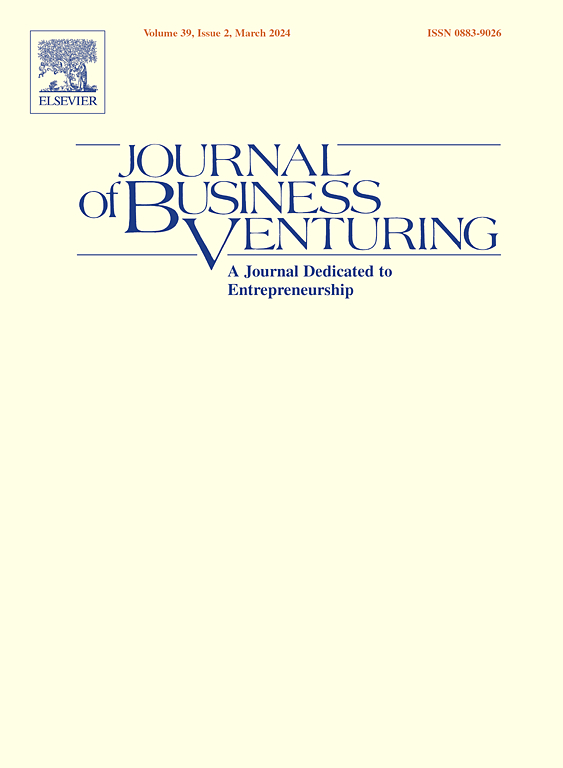Immigrant entrepreneurship in the United States: Intersectionality as a blessing and a curse
IF 7.7
1区 管理学
Q1 BUSINESS
引用次数: 0
Abstract
Immigrant entrepreneurship is a crucial topic of interest for academics, policymakers, and the popular press. Discussions of related topics often use intersectionality to explain the compounding effects of multiple “oppressed” identities; the current study provides some novel insights into how intersectional effects can also confer unique advantages to immigrant populations in the United States. We examine intersectional effects across immigrants' higher education, their home country's entrepreneurial culture, and the host country's state-level institutional environment on the probability that people become entrepreneurs. With a sample constructed from multiple sources and spanning 2005 to 2019, this research explores the channels that affect immigrants' self-selection into entrepreneurship. Although higher education and entrepreneurial cultural background positively affect new venture creation, state-level institutional barriers, like E-Verify mandates, create heterogeneous effects across immigrant groups. Furthermore, the entrepreneurial culture of immigrants' home countries leaves a lasting impression on venture creation, particularly when combined with higher education and even in the face of institutional barriers. This study offers policy makers relevant insights for how to augment the contributions of immigrant entrepreneurs and enhance the positive spillovers of new venture creation.
美国的移民创业:交叉性是福也是祸
本文章由计算机程序翻译,如有差异,请以英文原文为准。
求助全文
约1分钟内获得全文
求助全文
来源期刊

Journal of Business Venturing
BUSINESS-
CiteScore
16.70
自引率
6.90%
发文量
59
审稿时长
77 days
期刊介绍:
The Journal of Business Venturing: Entrepreneurship, Entrepreneurial Finance, Innovation and Regional Development serves as a scholarly platform for the exchange of valuable insights, theories, narratives, and interpretations related to entrepreneurship and its implications.
With a focus on enriching the understanding of entrepreneurship in its various manifestations, the journal seeks to publish papers that (1) draw from the experiences of entrepreneurs, innovators, and their ecosystem; and (2) tackle issues relevant to scholars, educators, facilitators, and practitioners involved in entrepreneurship.
Embracing diversity in approach, methodology, and disciplinary perspective, the journal encourages contributions that contribute to the advancement of knowledge in entrepreneurship and its associated domains.
 求助内容:
求助内容: 应助结果提醒方式:
应助结果提醒方式:


